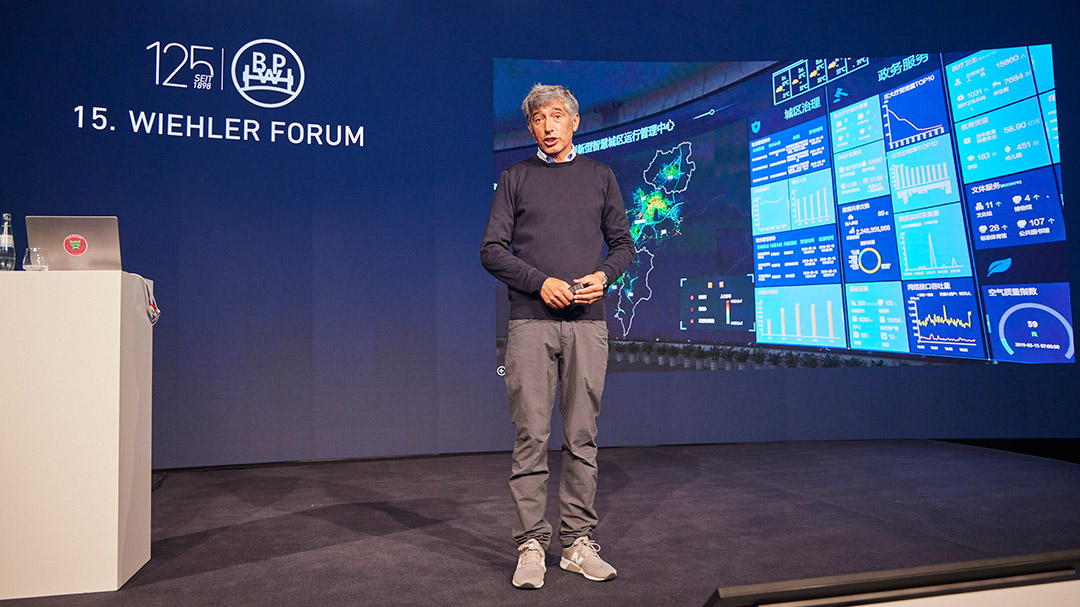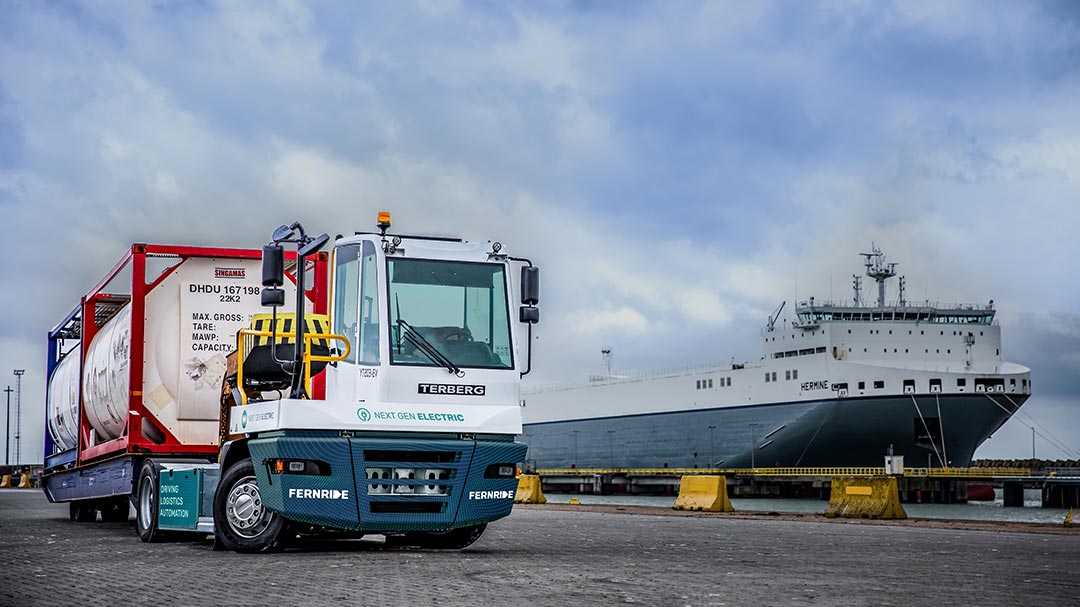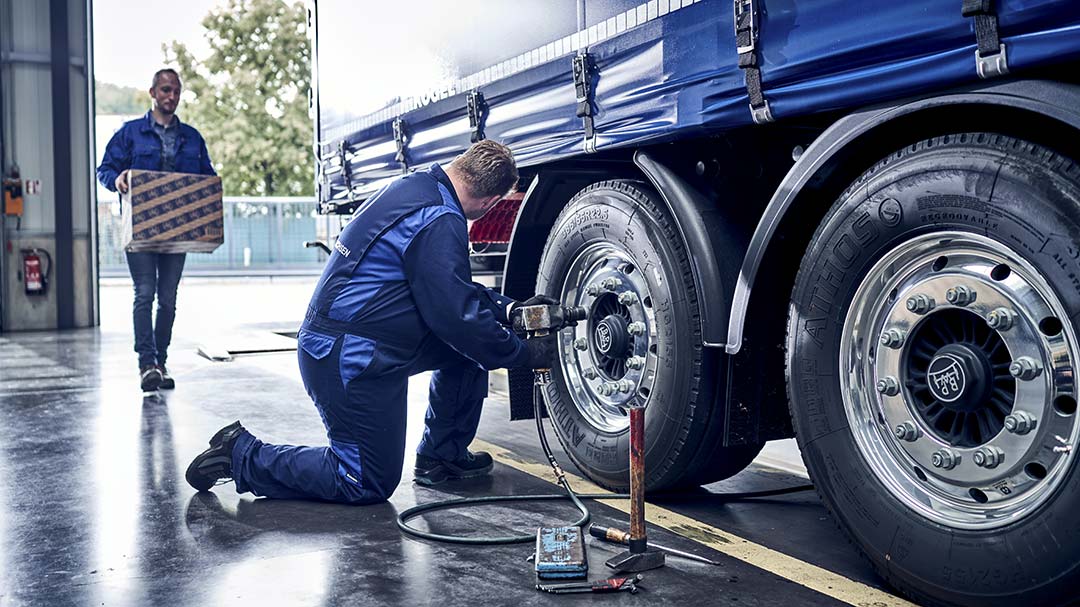Reading time: approx. 5 minutes
Text: Juliane Gringer
Photo: Tim Wegener
The TH Köln offers students outstanding courses on the topic of “artificial intelligence in logistics”. For this, the TH’s logistics team recently received the Federal Ministry of Transport’s Goods Transport and Logistics University Award, which was held in 2020 under the motto of the same name. Prof. Stephan Freichel explains where artificial intelligence (AI) has already arrived in practice today and how managers should position themselves for the future.
How has the topic of AI found its way into your teaching?
Prof. Stephan Freichel: Digitalisation has also been shaping logistics for a few years now, and for this reason alone it must be incorporated into our courses. As a university of applied sciences, we always look at what is state of the art in such a topic and implement it in our modules in the degree programmes that focus on logistics and supply chain and operations management. Our colleagues from the technology and IT subjects, for example, can give us good impulses here and also illustrate the contents very well with their laboratories. Therefore, it was clear to us quite early on that we would include artificial intelligence wherever it fits. This has led to research projects that we develop with the students, especially in the Master’s programme. And of course our partner companies also give us input again and again: for example, students from the TH Köln write project and final theses in cooperation with BPW Bergische Achsen KG. All in all, AI is not a trendy topic for us, but a very relevant competence.
What about practical logistics – how much AI has already arrived there?
We already see it today in autonomous driving and thus also in road transport. In company intralogistics, it is used in forklifts or other internal and inter-company transport systems. Through forecasting, i.e. the prediction of demand, one knows better and better what the customer wants tomorrow. In network planning for warehouses, such algorithms are already included in the software solutions of traditional providers: This saves a lot of time and paperwork in sales and order processing. In administration, bots are used, among other things, to validate or even anticipate certain processes at an early stage. Invoices are scanned, recognised, recorded, automatically scheduled according to payment deadline and processed by assistance systems. Chatbots are already used in sales in written dialogue or in the call centre. And, last but not least: in machine learning, sensor data from machines can indicate wear and tear at an early stage – keyword: predictive maintenance.
»What entrepreneurs should not do: stand still and stick to the old-fashioned paper economy. That no longer works, they will be blown away!«
Prof. Stephan Freichel, Faculty of Vehicle Systems and Production at TH Köln
Technology is advancing rapidly. How can companies be as sure as possible that they are making the right investments?
To do this, they should first look at where they stand, what fields of action and forces they have at their disposal. It starts with the good old lean attitude: everything should become leaner, better, faster, more efficient, more cost-effective, more service- and customer-oriented. That is the headline. Then they have to look at what they can actually capture and digitise – and move bit by bit towards what is available. They can ask themselves, for example, how they can make their trucks smarter, involve the drivers and make life even easier for them and the dispatchers through digital tools. They should use intelligent control processes, keep the software up to date and incorporate more sensor technology to make the data work for them. At the same time, they should also keep an eye on the limits and recognise where a business model still has strategic opportunities and where they might be better off betting on other horses – because there are things where you can no longer keep up. What entrepreneurs should not do: stand still and stick to the old-fashioned paper economy. That doesn’t work anymore, it blows them away! Because then things are simply not precise and transparent enough and this leads to wrong decisions.
How do the employees deal with the topic?
Sensitisation to this change has to be trained with the entire team, the team goes along on the journey. Because if the employees bury their heels in the sand, nothing will happen. Of course, they have a certain fear of the future and worry that technology will make their labour superfluous. Although everyone has a smartphone in their pocket in their private life, digitalisation is still a foreign body for many at work. Fear creates resistance. We have to take this seriously and show them step by step where they can contribute their strengths or where they have to change a bit.
How must managers be positioned to meet these requirements?
As a basis, of course, they need the necessary specialist knowledge. In addition, they should think in an interdisciplinary way, act internationally and be able to correctly assess the potential and limits of new technologies and use them for new projects. Equally important are social and intercultural skills, compliance and a strong sense of responsibility for the environment and society. In the context of digitalisation, almost all projects aimed at designing better or new business processes involve an IT project. Managers should think and work digitally in several respects.
»With artificial intelligence, I get a better view ahead, can plan actions better and build financial, technical, logistical as well as process decisions on a much stronger foundation.«
Prof. Stephan Freichel, Faculty of Vehicle Systems and Production at TH Köln
What do you see as the greatest advantages of AI?
The term contains the word “intelligence”, and that is exactly the core: the technologies manage much faster what the human brain only manages with great effort and computers only with high programming effort. With artificial intelligence, I get a better view of the future, can plan actions better and build financial, technical, logistical and process-related decisions on a much stronger foundation. Whether distribution logistics processes, production supply, procurement logistics or transport logistics – all areas of logistics become better as a result.







